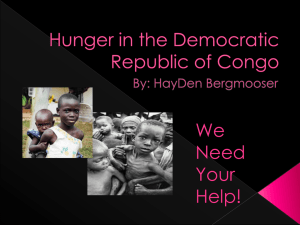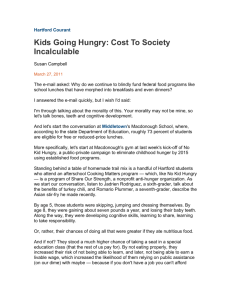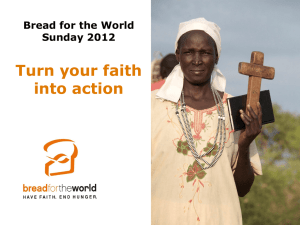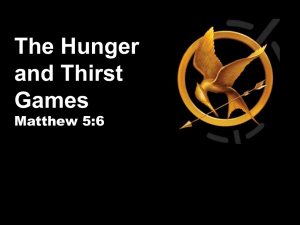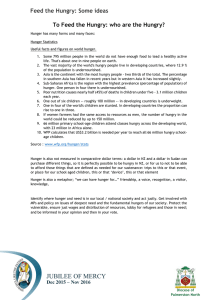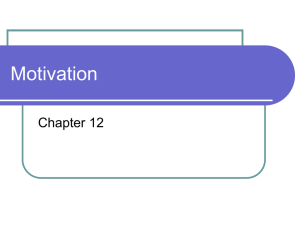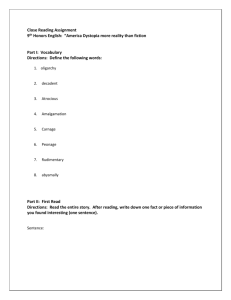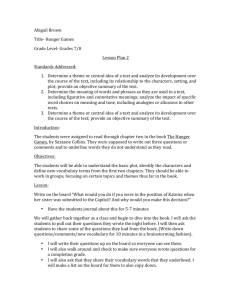File
advertisement
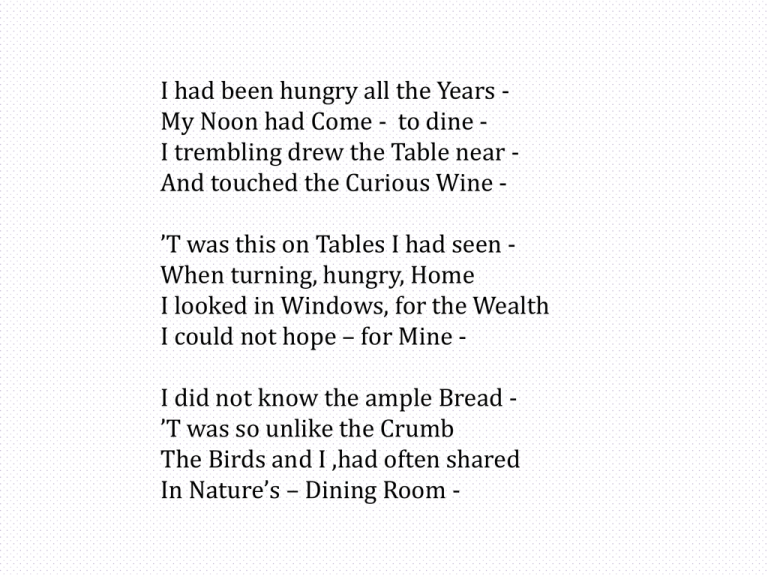
I had been hungry all the Years My Noon had Come - to dine I trembling drew the Table near And touched the Curious Wine - ’T was this on Tables I had seen When turning, hungry, Home I looked in Windows, for the Wealth I could not hope – for Mine I did not know the ample Bread ’T was so unlike the Crumb The Birds and I ,had often shared In Nature’s – Dining Room - The Plenty hurt me - ’t was so new,— Myself felt ill - and odd As Berry - of a Mountain Bush Transplanted - to a Road - Nor was I hungry - so I found That hunger - was a way Of persons outside Windows The Entering - takes away - I had been hungry all the years. My noon had come to dine. I trembling drew the table near And touched the curious wine. Recount/narrative structure Syntax unusual 2 timeframes – years … noon – why the change? Sharp focus on this significant moment. Noon = a time of ending or beginning – symbolic? Sense of fate “My noon had come” The only stanza with true rhyme – (before the crisis) Verb tenses: pluperfect and simple past Transferred epithet (“curious”) Wine: religious sacrament / luxury / alcohol – intoxicating? Connotes age / sophistication Time / Waiting Are others with her? Hungry for what? Love / Fame / Recognition for her poetry? Metaphor of physical anticipation / nervousness / inexperience / need followed by disappointment 'Twas this on tables I had seen When turning hungry home I looked in windows for the wealth I could not hope for mine. Repetition/Alliteration (t + h + w) Rhyme breaks down into half rhyme (home/mine) Syntax awkward/ambiguous in the last 2 lines Hunger drove her / motivated her search Her “home” could not provide riches such as this – but did it provide for her needs? Up until now, had she ignored these riches? What changed that she could “enter”? I did not know the ample bread. 'Twas so unlike the crumb The birds and I had often shared In nature's dining-room. “ample bread” – pairing of plosives p and b “often shared” – as was her habit “shared” implies fellowship / communion / equality … Leads us to consider the connotations of the phrase ‘communion with nature’ Plenty can be too much Simplicity and sufficiency of Nature? OR The lean times with nature are preferable to the plenty of the arrogant? Spiritual hunger? The Church does not meet her deep need? The plenty hurt me, 'twas so new. Myself felt ill and odd, As berry of a mountain bush Transplanted to the road. Breaking of smooth rhythm Caesura plus “Myself felt ill and odd” – followed by a ‘rushed’ two final lines Simile – (a wild plant uprooted and moved to a road) –the opposite to the privacy / wildness of the mountain Alliteration (berry/bush) Echoed in the plosive p (plenty / transplanted) She felt out of place – out of her milieu (natural environment) Disappointment in meeting the ‘hunger’. It is not satisfying or fulfilling If someone else puts ED in the public eye – she will suffer! Perhaps – if her poems are published – her intellectual integrity / freedom will also suffer Nor was I hungry, so I found That hunger was a way Of persons outside windows The entering takes away. Further change of rhyme into an identical or “perfect” rhyme (a way / away) – which sounds forced or strange to my C21st ears! Strange / impersonal word choice (“of persons”) Syntax awkward Meeting the need removes the “hunger” (desire) Does it destroy the hunger for ever? Did the publication of two poems without her permission strengthen her resolve to never publish again? Is this poem also/instead expressing a sense of loss … e.g. of spiritual identity / romantic love? Dickinson examines the choice … of keeping her poems private, rather than of publishing … anD therefore exposing herself to uninformed criticism. One can be surrounded by one world and choose to belong to another One can commit to a specific domain of activity in order to have a sense of belonging If one discovers a talent or a passion in life, one may find this sufficient to give one a sense of fulfilment and belonging. Expecting to find / seeking a sense of belonging in society may not lead to self-fulfilment or satisfaction Society may not always meet one’s needs for belonging Just ONE of the responses on the Internet … She is talking about spiritual hunger. The ample bread, the curious wine are Christ metaphors. Once she was in the natural world, longing for spiritual fulfilment. When she attains it, everything is different for her, and it is obviously overwhelming. And her perspective changes. Kerry from United States http://www.americanpoems.com/poets/emilydickinson/10531/comments Explore this poem yourself …. with the help of this university site http://academic.brooklyn.cuny.edu/english/melani/cs6/ hungry.html
